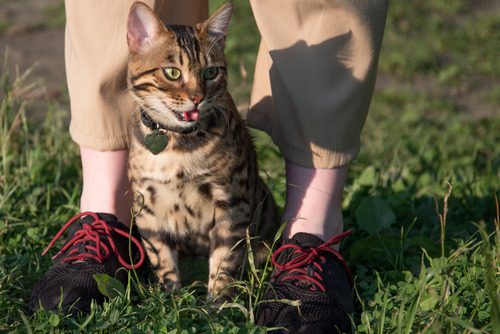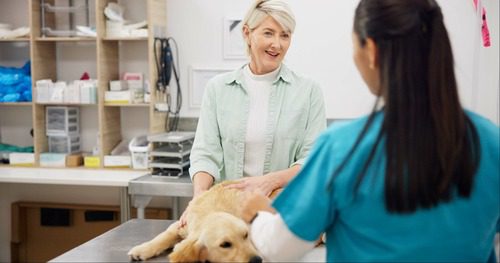When Do Pitbulls Stop Growing
As a responsible Pitbull owner, you may wonder, “When do Pitbulls stop growing?” Understanding your pet’s growth patterns can help you provide the best care and ensure they reach their full potential. In this blog, we’ll explore the various stages of Pitbull growth, factors influencing their development, and what you can expect as your Pitbull matures. If you have any concerns about your Pitbull’s growth or health, call us at (702) 876-7580 or request an appointment online.

Understanding Pitbull Growth Stages
Pitbulls go through several growth stages, each with unique characteristics and milestones. Knowing these stages can help you monitor your Pitbull’s progress and address any concerns early on.
Puppy Stage (0-6 Months)
During the first six months, Pitbull puppies experience rapid growth. This is a critical period for their development, and proper nutrition and care are essential. Puppies will typically double their birth weight within the first few weeks. By six months, they will have reached about 75% of their adult height and weight.
Adolescent Stage (6-18 Months)
The adolescent stage is when Pitbulls continue to grow but at a slower rate. This period can be challenging for pet owners as Pitbulls are full of energy and may exhibit some behavioral issues. Socialization and training are crucial during this time to ensure they develop into well-behaved adults.
Adult Stage (18-24 Months)
Most Pitbulls reach their full height by the time they are 18 months old. However, they may continue to fill out and gain muscle mass until they are about two years old. This stage marks the end of their physical growth, although mental and emotional development continues throughout their life.
Factors Influencing Pitbull Growth
Several factors can influence when and how your Pitbull will grow. Understanding these factors can help you provide the best care and address any potential growth issues.
- Genetics: Genetics play a significant role in determining a Pitbull’s size and growth rate. If your Pitbull’s parents were large, chances are your pet will also grow to be larger. Conversely, if they came from a smaller lineage, their growth might be more modest.
- Nutrition: Proper nutrition is crucial for healthy growth. A balanced diet rich in essential nutrients supports bone development, muscle growth, and overall health. Ensure your Pitbull receives high-quality dog food appropriate for their age, size, and activity level. Overfeeding or underfeeding can lead to growth problems and health issues.
- Exercise: Regular exercise is vital for your Pitbull’s physical development. It helps build strong muscles, maintain a healthy weight, and prevent behavioral problems. However, it’s important to balance exercise with rest, especially during the puppy stage, to avoid injuries and support proper bone growth.
- Health: Health issues can impact your Pitbull’s growth. Parasites, infections, or hormonal imbalances can hinder their development. Regular veterinary check-ups are essential to monitor your Pitbull’s health and address any concerns promptly. If you notice any signs of poor growth or health issues, contact us at Sahara Pines Animal Hospital.
Common Growth Concerns in Pitbulls
While most Pitbulls grow without any issues, some concerns may arise during their development. Being aware of these potential problems can help you take early action and ensure your pet stays healthy.
Slow Growth
If your Pitbull is not growing as expected, it could be due to nutritional deficiencies, health problems, or genetic factors. A veterinary evaluation can help determine the cause and provide appropriate treatment or dietary adjustments.
Rapid Growth
Rapid growth can lead to joint and bone issues in Pitbulls. Ensuring a balanced diet and avoiding overfeeding can help manage their growth rate. If you notice your Pitbull growing too quickly, consult your veterinarian for advice.
Developmental Disorders
Certain developmental disorders, such as hip dysplasia or patellar luxation, can affect Pitbulls. These conditions can impact their growth and quality of life. Early detection and intervention are key to managing these issues effectively.
Caring for Your Growing Pitbull
Providing the right care during your Pitbull’s growth stages can set the foundation for a healthy and happy life. Here are some tips to support your Pitbull’s development.
- Proper Nutrition: Feed your Pitbull a balanced diet with high-quality ingredients. Consult your veterinarian to determine the best food and portion sizes for your pet. Avoid giving table scraps or excessive treats that can lead to weight gain and nutritional imbalances.
- Regular Exercise: Ensure your Pitbull gets regular exercise to build strong muscles and maintain a healthy weight. Activities like walking, running, and playing fetch are great ways to keep them active. However, avoid overexertion, especially in puppies, to prevent injuries.
- Routine Veterinary Care: Regular veterinary check-ups are essential to monitor your Pitbull’s growth and overall health. Vaccinations, parasite prevention, and dental care are crucial components of their health regimen. Your veterinarian can also provide guidance on diet, exercise, and any specific health concerns.
- Socialization and Training: Socialization and training are important for your Pitbull’s mental and emotional development. Expose them to different environments, people, and other animals to build their confidence and reduce anxiety. Positive reinforcement training helps establish good behavior and strengthens your bond with your pet.
Embracing Your Pitbull’s Journey
Understanding when Pitbulls stop growing and the factors influencing their development can help you provide the best care for your pet. By supporting their growth with proper nutrition, regular exercise, and routine veterinary care, you can ensure they grow into healthy and happy adults. If you have any concerns about your Pitbull’s growth or health, reach out to us at Sahara Pines Animal Hospital. Call us at (702) 876-7580 or request an appointment online today.
Recent Posts
About Sahara Pines Animal Hospital
For exceptional veterinary care in an environment that welcomes you as family, partner with Sahara Pines Animal Hospital and we’ll help you meet all your pet’s needs for a lifetime.




